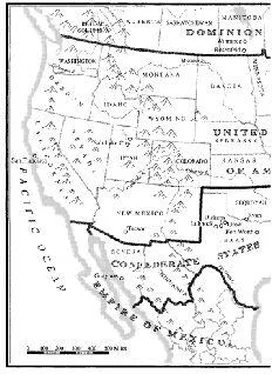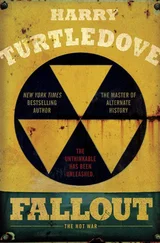Harry Turtledove - Walk in Hell
Здесь есть возможность читать онлайн «Harry Turtledove - Walk in Hell» весь текст электронной книги совершенно бесплатно (целиком полную версию без сокращений). В некоторых случаях можно слушать аудио, скачать через торрент в формате fb2 и присутствует краткое содержание. Жанр: Альтернативная история, на английском языке. Описание произведения, (предисловие) а так же отзывы посетителей доступны на портале библиотеки ЛибКат.
- Название:Walk in Hell
- Автор:
- Жанр:
- Год:неизвестен
- ISBN:нет данных
- Рейтинг книги:3 / 5. Голосов: 1
-
Избранное:Добавить в избранное
- Отзывы:
-
Ваша оценка:
- 60
- 1
- 2
- 3
- 4
- 5
Walk in Hell: краткое содержание, описание и аннотация
Предлагаем к чтению аннотацию, описание, краткое содержание или предисловие (зависит от того, что написал сам автор книги «Walk in Hell»). Если вы не нашли необходимую информацию о книге — напишите в комментариях, мы постараемся отыскать её.
Walk in Hell — читать онлайн бесплатно полную книгу (весь текст) целиком
Ниже представлен текст книги, разбитый по страницам. Система сохранения места последней прочитанной страницы, позволяет с удобством читать онлайн бесплатно книгу «Walk in Hell», без необходимости каждый раз заново искать на чём Вы остановились. Поставьте закладку, и сможете в любой момент перейти на страницу, на которой закончили чтение.
Интервал:
Закладка:
“What? I certainly do mind.”
“Ma’am, I am confiscating your motorcar in the name of the Confederate States of America,” Hotchkiss said. “This is a military area; I have that right. The vehicle will be returned to you at the end of this emergency. If for any reason it cannot be returned, you will be compensated as required by law.” When Anne, not believing what she was hearing, made no move to get out, the major snapped, “Potter! Harris!” Two of his men trained rifles on her.
“This is an outrage!” she exclaimed. The soldiers’ faces were implacable. If she didn’t get out, they would shoot her. That was quite plain. Quivering with fury, she descended to the ground.
Major Hotchkiss pointed farther up the road. “There’s a crossroads general store up there. We’ve got a fair number of folks in tents already. It’s about half a mile. You go on, Miss Colleton. They’ll take care of you best they can. We smash this Colored Socialist Republic or whatever the niggers are calling it, then we can get on with the fight against the damnyankees.”
“Give me a rifle,” Anne said suddenly. “I’m a good shot, and I’m a lot less likely to fall over dead than half your so-called soldiers here.”
But the Confederate major shook his head without a word. She knew she was right, but what good did that do her if he wouldn’t listen? The answer tolled in her mind: none. Dully, she began walking up the road. When war reached out its hand, what did wealth and power matter? A fool with a gun could take them away. A fool with a gun had just taken them away.
Major Irving Morrell and Captain John Abell took off their caps when they went into Independence Hall to see the Liberty Bell. Philadelphia, being the headquarters of the War Department, was full of U.S. military men of all ranks and branches of service. Only someone very observant would have noted the twisted black-and-gold cords on the caps that marked these two as General Staff officers.
Abell, who had a bookish look to him, fit the common preconception for the appearance of a General Staff man. Morrell, though, was more weathered, his face lined and tanned, though he was only in his mid-twenties. He wore his sandy hair cropped close to his head, as field officers commonly did. He felt like a field officer. He’d been a field officer: he’d almost lost a leg in the U.S. invasion of Confederate Sonora, and then, after a long recuperation, he’d led a battalion in eastern Kentucky. What he’d done there had impressed his division commander enough to get him sent to Philadelphia.
Intellectually, he knew what a plum this was. It didn’t altogether fill him with joy, though. He wanted to be out in the forest or the mountains or tramping through the desert-somewhere away from the city and close to the foe.
“Come on, let’s get moving,” he said now, and hurried ahead of Abell to get a good look at the Liberty Bell. His thigh pained him when he sped up like that, and would probably go on paining him the rest of his life. He ignored it. You could let something like that rule you, or you could rule it. Morrell did not aim to let anything keep him from doing what he wanted to do.
“It’s been here a long time, Major,” Abell said. “It’s going to be here for a long time yet.”
“Yes, but I’m not going to be here for a long time,” Morrell answered. When he’d learned enough, or so the promise had gone, they’d promote him and send him back to the field to command a unit bigger than a battalion. “I want to fight with guns, not with maps and dividers and a telegraph clicker.”
He looked back over his shoulder as he said that, just in time to catch the sidelong glance Abell gave him. The captain, like most General Staff officers, preferred fighting the war at a distance and in the abstract to the reality of mud and bad food and wounds and terror. Battle always seemed so much cleaner, so much neater, when it was red and blue lines on a chart.
Then such thoughts left Morrell’s mind as, with a good many other soldiers, he crowded round the emblem of freedom for the United States. The surface of the bell was surprisingly rough, testimony to the imperfect skill of the founders who had cast it. Around the crown ran the words from Leviticus that had given the bell its name: Proclaim liberty throughout the land unto all the inhabitants thereof .
He wondered whether Robert E. Lee had seen the Liberty Bell when he occupied Philadelphia in 1862. Lee’s victories had given the Confederate States a liberty the USA had not wanted to grant them, but he hadn’t taken the bell back south with him. That was something, albeit not much.
Morrell reached out and touched the cool metal. “We’re still free,” he murmured. “Still free, by God.”
“That’s right,” John Abell said beside him. “The freest nation on the face of the earth.” Normally cold-blooded as a lizard in a blizzard, he sounded genuinely moved by the Liberty Bell. Then, almost gloating, he added, “And we’re going to pay the Rebs back for all they’ve done to us these past fifty years, and the English, and the French, and the Canadians, too.”
“You’d best believe it,” Morrell said, and took his hand away. The metal of the bell had grown warm under his fingers. He smiled, enjoying the idea that he had had a connection with history. No sooner had he stepped back from the bell than a fresh-faced lieutenant came up and caressed its smooth curves with almost a lover’s touch.
Independence Hall also boasted a facsimile of the Declaration of Independence. Facsimiles, though, meant little to Morrell. What was real counted. If you wanted to be theoretical…you belonged on the General Staff. He snorted, amused by the conceit.
“What’s funny, sir?” Captain Abell asked. Morrell just smiled and shook his head, not wanting to insult his companion.
They walked up Chestnut, back toward the War Department offices that had swallowed so much of Franklin Square. Philadelphia buzzed with all sorts of Federal activity; especially after the Confederate bombardment of Washington during the Second Mexican War, the Pennsylvania city had become the de facto capital of the USA. That was as well, for Washington now lay under the bootheels of the Rebels.
The opening Confederate attack in the war had been aimed at Philadelphia, too, but was stopped at the Susquehanna, one river short of the Delaware. Here and there, buildings bore scars from Confederate bombing raids. These days, with the Rebels pushed back into Maryland, bombing aeroplanes came over more rarely. Even so, antiaircraft cannon poked watchful snouts into the air in parks and at street corners.
Abell bought a couple of cinnamon rolls, a Philadelphia specialty, from a street vendor. He offered one to Morrell, who shook his head. “I don’t want anything that sweet,” he said. Half a block later, he came upon a Greek selling grape leaves stuffed with spicy meat and rice. To make them easier to handle, the fellow had skewered them on sticks. Morrell bought three. “Here’s a proper lunch,” he declared.
He and Abell both slowed down to eat as they walked. They hadn’t gone far when someone behind them shouted, “Get the hell out of here, you stinking wog! This is a white man’s town.”
Morrell turned on his heel, Abell imitating him. A beefy, middle-aged civilian was shaking his finger in the Greek foodseller’s face. Ignoring the twinge in his bad leg, Morrell walked rapidly back toward them. As he drew near, he saw the beefy man wore a pin in his lapel: a silver circle, with a sword set slantwise across it. Soldiers’ Circle members made up a sort of informal militia of men who had served out their terms of conscription. They were perhaps the leading patriotic organization in the country, especially to hear them talk.
Читать дальшеИнтервал:
Закладка:
Похожие книги на «Walk in Hell»
Представляем Вашему вниманию похожие книги на «Walk in Hell» списком для выбора. Мы отобрали схожую по названию и смыслу литературу в надежде предоставить читателям больше вариантов отыскать новые, интересные, ещё непрочитанные произведения.
Обсуждение, отзывы о книге «Walk in Hell» и просто собственные мнения читателей. Оставьте ваши комментарии, напишите, что Вы думаете о произведении, его смысле или главных героях. Укажите что конкретно понравилось, а что нет, и почему Вы так считаете.












